Related Research Articles
"Pōkarekare Ana" is a traditional New Zealand love song, probably communally composed about the time World War I began in 1914. The song is written in Māori and has been translated into English. It enjoys widespread popularity in New Zealand as well as some popularity in other countries.
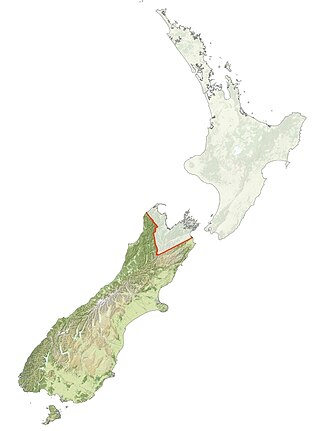
Ngāi Tahu, or Kāi Tahu, is the principal Māori iwi (tribe) of the South Island. Its takiwā is the largest in New Zealand, and extends from the White Bluffs / Te Parinui o Whiti, Mount Mahanga and Kahurangi Point in the north to Stewart Island / Rakiura in the south. The takiwā comprises 18 rūnanga corresponding to traditional settlements. According to the 2018 census an estimated 74,082 people affiliated with the Kāi Tahu iwi.

Christchurch is the largest city in the South Island and the second-largest city by urban area population in New Zealand, after Auckland. Christchurch lies in the Canterbury Region, near the centre of the east coast of the South Island, east of the Canterbury Plains. It is located near the southern end of Pegasus Bay, and is bounded to the east by the Pacific Ocean and to the south by Banks Peninsula. The Avon River / Ōtākaro flows through the centre of the city, with a large urban park along its banks. Christchurch has a reputation for being an 'English' city, with its architectural identity and common nickname the "Garden City" due to similarities with garden cities in England.
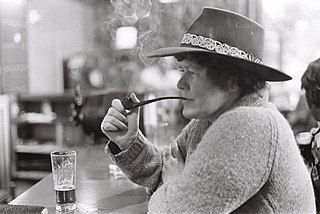
Keri Ann Ruhi Hulme was a New Zealand novelist, poet and short-story writer. She also wrote under the pen name Kai Tainui. Her novel The Bone People won the Booker Prize in 1985; she was the first New Zealander to win the award, and also the first writer to win the prize for a debut novel. Hulme's writing explores themes of isolation, postcolonial and multicultural identity, and Māori, Celtic, and Norse mythology.
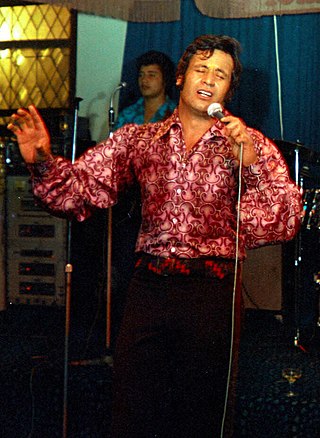
Sir Howard Leslie Morrison was a New Zealand entertainer. From 1964 until his death in 2009, he was one of New Zealand's leading television and concert performers.

Cashmere is a suburb which rises above the southern end of the city of Christchurch in New Zealand's South Island.

David Alexander McPhail was a New Zealand comedic actor and writer whose television career spanned four decades. McPhail first won fame on sketch comedy show A Week of It, partly thanks to his impressions of New Zealand prime minister Robert Muldoon. He went on to appear in multiple series of sketch show McPhail and Gadsby, and hit comedy Letter to Blanchy. All three shows featured his longtime friend Jon Gadsby.
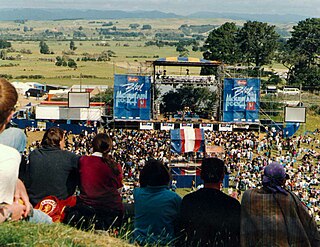
Music festivals have a long and chequered history in New Zealand. The first large outdoor rock music festivals were Redwood 70 in 1970 and the Great Ngaruawahia Music Festival in 1973. The largest was the 1979 Nambassa festival, one of several Nambassa festivals held around that time, in Golden Valley, just north of Waihi.
The Ngaio Marsh Theatre is a theatre at the University of Canterbury Students' Association in Christchurch, New Zealand.
"Now Is the Hour" is a popular song from the early 20th century. Often erroneously described as a traditional Māori song, its creation is usually credited to several people, including Clement Scott (music), and Maewa Kaihau and Dorothy Stewart.
Vince Harder is a New Zealand R&B/pop recording artist and producer. He is most notable for the 2008 song "Everything" with P-Money, which reached number one in New Zealand on the New Zealand Singles Chart in 2008. In May 2010, he released the single "Say This With Me" which peaked at number 39 on the singles chart.
Merata Mita was a New Zealand filmmaker, producer, and writer, and a key figure in the growth of the Māori screen industry.
Nancy Brunning was a New Zealand actress, director, and writer who won awards in film and television and made a major contribution to the growth of Māori in the arts. She won the best actress award at the New Zealand Film Awards for her lead role in the film What Becomes of the Broken Hearted? (1999). In 2000, she won the Best Actress in Drama award at the New Zealand Television Awards for her lead role in the television series Nga Tohu.
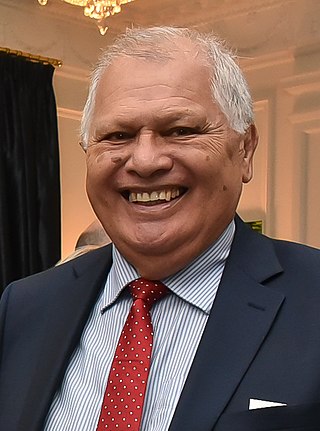
Sir Harawira Tiri Gardiner was a New Zealand soldier, public servant, and writer. He was Māori, of Ngāti Awa, Ngāti Pikiao, Whakatōhea, and Te Whānau-ā-Apanui descent.

Rachel Jessica Te Ao Maarama House is a New Zealand actress and director. She has received numerous accolades including an Arts Laureate, NZ Order of Merit, 'Mana Wahine' from WIFT NZ and Te Waipuna a Rangi for her contributions as an actor and director.
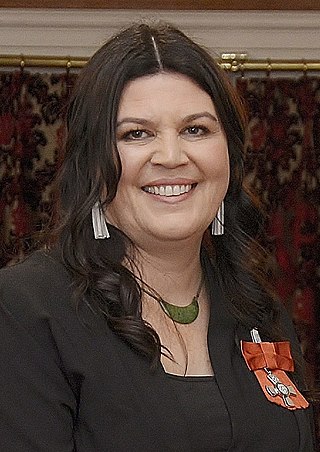
Ainsley Amohaere Gardiner is a film producer from New Zealand.
Sharon Holt is a children's writer, publisher and creator of books and resources in Te Reo Māori. Several of her books have won or been shortlisted for awards, and her Te Reo Singalong series won its category in both Ngā Tohu Reo Māori / Māori Language Awards in 2013 and the CLNZ Educational Publishing Awards in 2015. She lives in Te Aroha, New Zealand.
Greta Regina Aroha Yates-Smith, known as ArohaYates-Smith, is a New Zealand performer and academic, who affiliates to Te Arawa, Tainui, Takitimu, Horouta, and Mataatua. She is known for her research into forgotten Māori female deities.
Cat Ruka is a New Zealand dancer, choreographer, performance director and arts manager.
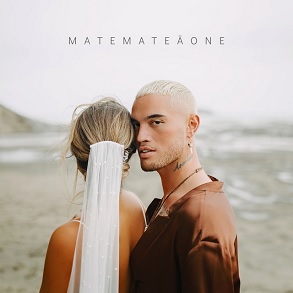
"Matemateāone" is a song by New Zealand musician Stan Walker. A bilingual ballad sung primarily in Māori language, the song was released as a single a week before Walker's first album sung in Māori, Te Arohanui. A love ballad, the song's music video celebrates his marriage to his partner Lou Tyson.
References
- 1 2 3 4 5 6 7 8 9 10 11 12 13 14 15 16 17 18 19 20 "Gallagher, Kathleen". www.read-nz.org. January 2017. Retrieved 9 September 2019.
- 1 2 3 4 5 6 7 8 9 10 11 12 13 "Kathleen Gallagher". NZ On Screen. Retrieved 9 September 2019.
- 1 2 3 4 5 6 7 8 "Kathleen Gallagher". New Zealand Society of Authors (PEN NZ Inc) – Te Puni Kaituhi O Aotearoa. Retrieved 9 September 2019.
- ↑ "Seven Rivers Walking". RNZ. 29 August 2017. Retrieved 9 September 2019.
- 1 2 3 4 Joyce, Janet (June 2007). "A breath of peace: an interview with Kathleen Gallagher" (PDF). Chrysalis Seed Arts. Retrieved 10 September 2019.
- 1 2 "Seven Rivers Walking – Haere Mārire | Film | NZ On Screen". NZ On Screen. Retrieved 9 September 2019.
- ↑ Screen, NZ On. "Kathleen Gallagher | NZ On Screen". www.nzonscreen.com. Retrieved 10 September 2019.
- ↑ Gallagher, Kathleen; Winstanley, Kate; Rippingale, Gen (1999). Mothertongue : four plays of Women's Action Theatre. Publishing Giant Press. ISBN 0958358265.
- ↑ Gallagher, Kathleen (2002). Peace Plays. Doygal Press. ISBN 0473088088.
- 1 2 Fletcher, Jack (21 February 2018). "Creative Conversations: Earthquake play a chance to process and talk about Christchurch's loss". Stuff. Retrieved 10 September 2019.
- ↑ Gallagher, Kathleen (2018). Īnangahua Gold. KingFisher Publishing. ISBN 9780473459451.